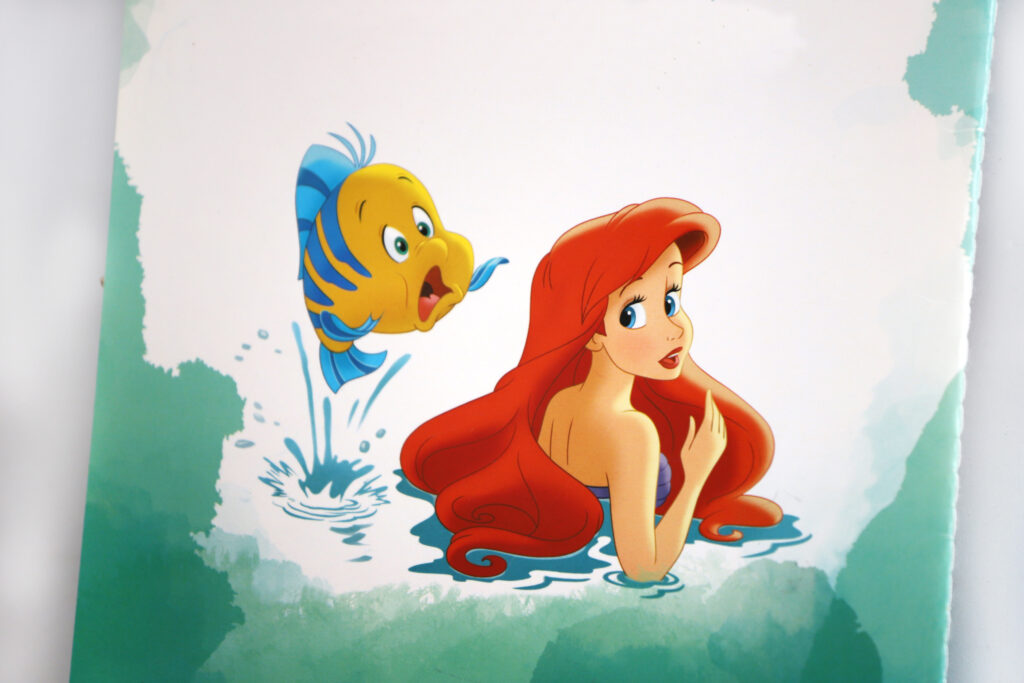Can Walt Disney teach us all valuable lessons in the law? Of course the answer is “yes” – why would I be writing this article otherwise? Today we tackle contract law and the lessons that can be gleaned from The Little Mermaid… or, as I like to call it, why you probably shouldn’t sign a contract immediately after an evil song/dance number while hundreds of trapped souls surround you. But I digress.
We all know the story. A young mermaid falls in love with a human sailor so she tasks her sea god father to cause a monsoon that drowns her beau’s crew and strands him on an island where he has no choice but to love her. Ok, maybe I’m forgetting a few details, but the gist of it is that legs are required for jumping/dancing and you don’t get too far flippin your fins. You can have all the gadgets and gizmos a-plenty, but without human legs, you aren’t getting the human hunk. So it’s off to the “Sea Witch” to make a deal… and perhaps learn our first lesson of not entering into a contract with a Sea Witch.
What is a Contract?
 In human/non-mermaid terms, a contract is simply an agreement between people to do something in exchange for something. That might mean I agree to sell you my car for $10,000.00 or you agree to paint my house for $100.00 (seriously, any takers on that one?). Some contracts need to be in writing (what we fancy lawyers call the “statute of frauds’” while others can be consummated with a handshake/verbal agreement. They could write a whole book on contracts (and they do), but the long and short of it is that each side to a contract must provide something of value… what we hoity-toity lawyers call “consideration.” In context, your consideration is the painting of my house while my consideration is the $100.00 I pay you (it’s a good deal… I promise). If you offered to paint my house for free, that wouldn’t be an enforceable contract because I didn’t offer anything in return (other than my gratitude, which is priceless).
In human/non-mermaid terms, a contract is simply an agreement between people to do something in exchange for something. That might mean I agree to sell you my car for $10,000.00 or you agree to paint my house for $100.00 (seriously, any takers on that one?). Some contracts need to be in writing (what we fancy lawyers call the “statute of frauds’” while others can be consummated with a handshake/verbal agreement. They could write a whole book on contracts (and they do), but the long and short of it is that each side to a contract must provide something of value… what we hoity-toity lawyers call “consideration.” In context, your consideration is the painting of my house while my consideration is the $100.00 I pay you (it’s a good deal… I promise). If you offered to paint my house for free, that wouldn’t be an enforceable contract because I didn’t offer anything in return (other than my gratitude, which is priceless).
Does Ariel Enter into an Enforceable Contract?
The Little Mermaid would probably be a vastly different (and far more boring) movie if Ariel came to Ursula’s cave with an experienced business attorney (obligatory self-plug) to negotiate terms on her behalf. But alas, she did not. Ursula and her henchmen (another warning sign) present the deal…
Now, here’s the deal. I will make you a potion that will turn you into a human for three days. Got that? Three days. Now listen, this is important. Before the sun sets on the third day, you’ve got to get dear ol’ princey to fall in love with you. That is, he’s got to kiss you. Not just any kiss, the kiss of true love. If he does kiss you before the sun sets on the third day, you’ll remain human, permanently. But if he doesn’t, you’ll turn back into a mermaid, and you belong to me!
Let’s get a couple things out of the way here as we slosh through this. First, Ariel is 16 years old… most states (including Florida where we are) say that you must be 18 years old to enter into a contract. But even if she was older, this isn’t what I would call a fantastic, well-negotiated bargain. Three days to make someone fall in love with you and, if you don’t, YOUR SOUL BELONGS TO ME. A good lawyer is probably going to discourage Ariel from signing that contract or at least get her some fringe benefits like a day pass at a human spa. Of course, we can’t make a contract for something that is illegal, and I have serious questions whether eternal slavery is something Ariel could legally agree to (I read somewhere that slavery is generally frowned upon under the law). But if we set all that aside and focus on the basic principles of contract law, we do seem to have consideration – human legs in exchange for a promise of eternal damnation if true love is not achieved within 3 days.
Enforceable? Well, I didn’t go to Under the Sea Law School, but at least one problem does jump out. A contract’s terms must be reasonably certain/capable of enforcement, and “true love” is somewhat difficult to measure. Assuming a kiss happens and Ariel/Ursula debate whether it was true love, someone needs to be able to determine whether it was true love, a teenage crush, etc. If it’s not capable of being measured, it’s not capable of being enforced.
But wait… there’s more. Three days of legs for the risk of eternal damnation doesn’t sound like a fantastic deal, but now Ursula throws in the ‘price’ (what she considers to be the consideration for the deal)… Ariel must relinquish her voice. And all Ariel needs to do is sign on the dotted line of a contract that was flashed in front of her for a few seconds following an ominous song/dance that arguably should have set off some alarms… I don’t know about you, but when someone starts contract negotiations off with “I admit that in the past I’ve been a nasty” and maniacally cackles throughout, I’d be somewhat hesitant to sign a contract.
Is the Contract Performed?
Assuming we have a valid contract here, there is still the issue of contract performance. Every contract has a “duty of good faith and fair dealing” – more lawyer speak for you generally need to perform your obligations in a contract honestly and not do anything to sabotage its performance. Here, it seems Ursula might have a problem. She directs her eels to interrupt a moment that Eric is poised to kiss Ariel (of course, Sebastian might be guilty of interfering in the contract by hypnotizing Eric with his melodic “Kiss the Girl” suggestion) and likewise uses Ariel’s own voice to distract Eric from falling in love with Ariel. None of this is likely explicitly prohibited by the contract, but it all seems designed to interfere with contract performance. Ariel’s no peach here, either. When her 3 days are up, she has her daddy re-negotiate the bargain and ultimately suggests murder on the high seas as a convenient way out of the contract (note – the courts frown on murder). Ok, in retrospect, Ursula is arguably the bigger problem here… indeed, most states subscribe to the doctrine of ‘first breach,’ meaning that Ariel’s performance under the contract was likely excused the moment that Ursula breached/violated the duty of good faith and fair dealing.
What Contract Law Lessons did We Actually Learn from The Little Mermaid?
Wait… there needs to be a moral to this story? Other than don’t sign your life away to strangers you just met, who plainly admit to being evil, and are surrounded by the broken shells of hundreds of mer-folk who couldn’t live up to their own contract obligations? The best lesson here is to use caution before signing a contract or entering into a handshake deal that you don’t fully understand. Being a business litigation attorney, I have seen far too many occasions where a client rushes into a bad deal and only seeks legal counsel after-the-fact (i.e., when it’s too late). This is especially true when you’re entering into a business with a friend/family member/someone you trust – you’re less likely to read the fine print or frankly have any fine print at all.
But as they say, an ounce of prevention is worth a pound of cure. Even though it ultimately worked out for Ariel, she would have been far better off asking the Sea Witch to send the draft contract to her lawyer who would have redlined that nonsense into oblivion. 3 days of legs? I don’t think so – my client is going to require at least 2 weeks. Eternal damnation? Too steep – she’ll wash your eels for a week and take out the trash for a month. Give up her voice? Not going to work for us – do you want my client’s eel-washing service or not?
Ariel should have negotiated a better deal or walked away from it altogether. That’s the benefit of legal advice – we lawyers are paid to recognize the warning signs when you’re too impassioned to think straight. In the real world, Ariel’s bad bargain could result in months of woes followed by a lengthy (and costly) legal battle in court. Having a thorough contract that fairly sets forth each side’s obligations is key. And having a strong legal partner to keep you from signing your life away ain’t a bad idea either.

